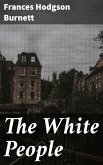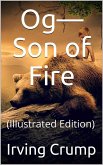In "White Fire," John Oxenham crafts a richly woven narrative steeped in spiritual exploration and moral inquiry. This novel, set against a backdrop of early 20th-century England, employs lyrical prose and vivid imagery to convey the transformative power of love and faith. Oxenham'Äôs thematic focus on the duality of human experience'Äîlight and darkness, joy and sorrow'Äîoffers readers a poignant meditation on the essence of existence, woven into a compelling story that is both accessible and profound. The book's literary context reflects the burgeoning modernist movement, innovatively blending traditional narrative forms with introspective discourse. John Oxenham, a pseudonym for the author William Hale White, was a British novelist and poet whose deep-seated Christian beliefs and personal experiences significantly influenced his writing. Renowned for his ability to articulate spiritual dilemmas, Oxenham traversed the complexities of faith and humanity throughout his career. His own struggles and triumphs as a believer in an increasingly secular world imbue "White Fire" with a sincere resonance and urgency that seeks to connect with readers on a personal level. This novel is highly recommended for readers seeking to explore the intersection of faith and human experience. Oxenham's lyrical style and profound insights invite contemplation and offer a refreshing perspective on inner struggles, making "White Fire" an essential addition to the library of anyone intrigued by spiritual literature.
Dieser Download kann aus rechtlichen Gründen nur mit Rechnungsadresse in A, B, BG, CY, CZ, D, DK, EW, FIN, F, GR, H, IRL, I, LT, L, LR, M, NL, PL, P, R, S, SLO, SK ausgeliefert werden.









